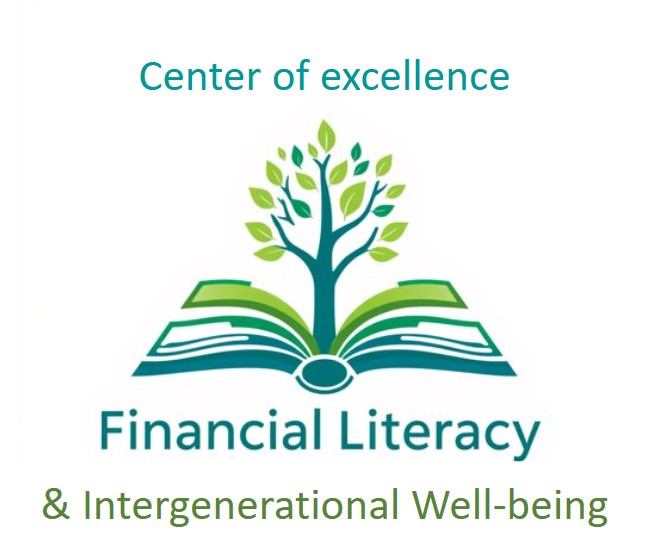Green Process Innovation and its Impact on Sustainability Performance: The Mediating Role of Green Supply Chain Management in the Food and Beverage Industry
 Abstract Views:
560 times
Abstract Views:
560 times
 PDF Downloads:
239 times
PDF Downloads:
239 times
Abstract
Purpose: The food and beverage sector, which contributes significantly to plastic waste in Indonesia, may reduce its usage of single-use plastics by using green process innovation (GPI). By incorporating economic and environmental goals into the strategic management of supply chain operations, Green Supply Chain Management (GSCM) can propel this. This study aims to evaluate the role of GPI and GSCM in achieving sustainable corporate performance (SP) in Indonesia, especially in the food and beverage industry.
Method: Purposive sampling was used to select samples from the food and beverage industry during the 2021-2023 period which resulted in 12 companies as samples. Path analysis was used as a data analysis method in this study. After that, Warp-PLS 8.0 software was used to process the data obtained.
Result: The results showed that GPI has a positive and significant influence on SP, and GPI has a positive and considerable influence on GSCM. Meanwhile, GSCM does not influence SP, and GSCM cannot mediate the influence between GPI and SP.
Downloads
References
Acar, S. G., & Çemberci, M. (2024). The Relation Between Green Supply Chain Management and Sustainable Performance. Journal of International Trade, Logistics and Law, 10(1), 304–308.
Albort-Morant, G., Leal-Millán, A., & Cepeda-Carrión, G. (2016). The antecedents of green innovation performance: A model of learning and capabilities. Journal of Business Research, 69(11), 4912–4917. https://doi.org/10.1016/j.jbusres.2016.04.052
Bhatia, M. S. (2021). Green process innovation and operational performance: The role of proactive environment strategy, technological capabilities, and organizational learning. Business Strategy and the Environment, 30(7), 2845–2857. https://doi.org/10.1002/bse.2775
Burki, U. (2018). Green Supply Chain Management, Green Innovations, and Green Practices. In Understanding Complex Systems (pp. 81–109). https://doi.org/10.1007/978-3-319-94322-0_4
Cainelli, G., De Marchi, V., & Grandinetti, R. (2015). Does the development of environmental innovation require different resources? Evidence from Spanish manufacturing firms. Journal of Cleaner Production, 94, 211–220. https://doi.org/10.1016/j.jclepro.2015.02.008
Chamas, A., Moon, H., Zheng, J., Qiu, Y., Tabassum, T., Jang, J. H., Abu-Omar, M., Scott, S. L., & Suh, S. (2020). Degradation Rates of Plastics in the Environment. ACS Sustainable Chemistry & Engineering, 8(9), 3494–3511. https://doi.org/10.1021/acssuschemeng.9b06635
Chan, H. K., Yee, R. W. Y., Dai, J., & Lim, M. K. (2016). The moderating effect of environmental dynamism on green product innovation and performance. International Journal of Production Economics, 181, 384–391. https://doi.org/10.1016/j.ijpe.2015.12.006
Chin, T. A., Tat, H. H., & Sulaiman, Z. (2015). Green Supply Chain Management, Environmental Collaboration and Sustainability Performance. Procedia CIRP, 26, 695–699. https://doi.org/10.1016/j.procir.2014.07.035
Chiou, T.-Y., Chan, H. K., Lettice, F., & Chung, S. H. (2011). The influence of greening the suppliers and green innovation on environmental performance and competitive advantage in Taiwan. Transportation Research Part E: Logistics and Transportation Review, 47(6), 822–836. https://doi.org/10.1016/j.tre.2011.05.016
Dai, J., Cantor, D. E., & Montabon, F. L. (2017). Examining corporate environmental proactivity and operational performance: A strategy-structure-capabilities-performance perspective within a green context. International Journal of Production Economics, 193, 272–280. https://doi.org/10.1016/j.ijpe.2017.07.023
Darnall, N., & Edwards, D. (2006). Predicting the cost of environmental management system adoption: the role of capabilities, resources and ownership structure. Strategic Management Journal, 27(4), 301–320. https://doi.org/10.1002/smj.518
Greenpeace Indonesia. (2019). Sampah Kemasan Makanan dan Minuman Mendominasi. Greenpeace. https://www.greenpeace.org/indonesia/cerita/4238/sampah-kemasan-makanan-dan-minuman-mendominasi/
Guoyou, Q., Saixing, Z., Chiming, T., Haitao, Y., & Hailiang, Z. (2013). Stakeholders’ Influences on Corporate Green Innovation Strategy: A Case Study of Manufacturing Firms in China. Corporate Social Responsibility and Environmental Management, 20(1), 1–14. https://doi.org/10.1002/csr.283
Hejazi, M. T., Al Batati, B., & Bahurmuz, A. (2023). The Influence of Green Supply Chain Management Practices on Corporate Sustainability Performance. Sustainability, 15(6), 5459. https://doi.org/10.3390/su15065459
Herrmann, F. F., Barbosa-Povoa, A. P., Butturi, M. A., Marinelli, S., & Sellitto, M. A. (2021). Green Supply Chain Management: Conceptual Framework and Models for Analysis. Sustainability, 13(15), 8127. https://doi.org/10.3390/su13158127
Holling, H., & Backhaus, L. (2023). A Meta-Analysis of Green Supply Chain Management Practices and Firm Performance. Sustainability, 15(6), 4730. https://doi.org/10.3390/su15064730
Hongquan, Z., & Abdullah, A. R. (2023). Enhancing Sustainable Business Performance in China’s Food Industry through Green Supply Chain Management. International Journal of Business and Technology Management, 5(4), 448–457. https://doi.org/10.55057/ijbtm.2023.5.4.40
Indriastuti, M., & Chariri, A. (2021). The role of green investment and corporate social responsibility investment on sustainable performance. Cogent Business & Management, 8(1), 1960120. https://doi.org/10.1080/23311975.2021.1960120
Issa, A., Khadem, A., Alzubi, A., & Berberoğlu, A. (2024). The Path from Green Innovation to Supply Chain Resilience: Do Structural and Dynamic Supply Chain Complexity Matter? Sustainability, 16(9), 3762. https://doi.org/10.3390/su16093762
Khan, S. A. R., & Qianli, D. (2017). Impact of green supply chain management practices on firms’ performance: an empirical study from the perspective of Pakistan. Environmental Science and Pollution Research, 24(20), 16829–16844. https://doi.org/10.1007/s11356-017-9172-5
Khan, S. J., Kaur, P., Jabeen, F., & Dhir, A. (2021). Green process innovation: Where we are and where we are going. Business Strategy and the Environment, 30(7), 3273–3296. https://doi.org/10.1002/bse.2802
Kivimaa, P., & Kautto, P. (2010). Making or breaking environmental innovation? Management Research Review, 33(4), 289–305. https://doi.org/10.1108/01409171011030426
Klassen, R. D., & Vachon, S. (2003). Collaboration and evaluation in the supply chain: the impact on plant‐level environmental investment. Production and Operations Management, 12(3), 336–352. https://doi.org/10.1111/j.1937-5956.2003.tb00207.x
Kock, N. (2022). WarpPLS User Manual: Version 7.0. ScriptWarp Systems.
Li, H., Li, Y., Sarfarz, M., & Ozturk, I. (2023). Enhancing firms’ green innovation and sustainable performance through the mediating role of green product innovation and moderating role of employees’ green behavior. Economic Research-Ekonomska Istraživanja, 36(2). https://doi.org/10.1080/1331677X.2022.2142263
Liu, B., & De Giovanni, P. (2019). Green process innovation through Industry 4.0 technologies and supply chain coordination. Annals of Operations Research. https://doi.org/10.1007/s10479-019-03498-3
Liu, H.-C., & You, X.-Y. (2021). Green Supplier Evaluation and Selection: Models, Methods and Applications. In Green Supplier Evaluation and Selection: Models, Methods and Applications. Springer Singapore. https://doi.org/10.1007/978-981-16-0382-2
Ma, Y., Hou, G., & Xin, B. (2017). Green Process Innovation and Innovation Benefit: The Mediating Effect of Firm Image. Sustainability, 9(10), 1778. https://doi.org/10.3390/su9101778
Makhloufi, L., Vasa, L., Rosak-Szyrocka, J., & Djermani, F. (2023). Understanding the Impact of Big Data Analytics and Knowledge Management on Green Innovation Practices and Organizational Performance: The Moderating Effect of Government Support. Sustainability, 15(11), 8456. https://doi.org/10.3390/su15118456
Mathu, K. (2021). Green Initiatives in Supply Chain Management Drives Enterprises’ Competitiveness and Sustainability. In Green Supply Chain - Competitiveness and Sustainability. IntechOpen. https://doi.org/10.5772/intechopen.94770
Novitasari, M., & Agustia, D. (2021). Green supply chain management and firm performance: The mediating effect of green innovation. Journal of Industrial Engineering and Management, 14(2), 391. https://doi.org/10.3926/jiem.3384
Ozilhan Ozbey, D., Coskun Degirmen, G., Berk, O. N., Sardagi, E., Celep, E., Koc, D., & Gozen, E. (2024). Green Core Competencies, Green Process Innovation, and Firm Performance: The Moderating Role of Sustainability Consciousness, a Mixed Method Study on Golf Hotels. Sustainability, 16(10), 4181. https://doi.org/10.3390/su16104181
Riski, P. (2024). Sensus BRUIN 2023, Sampah Plastik Persoalan Utama di Indonesia. MONGABAY. https://www.mongabay.co.id/2024/01/18/sensus-bruin-2023-sampah-plastik-persoalan-utama-di-indonesia/
Sharma, S., & Henriques, I. (2005). Stakeholder influences on sustainability practices in the Canadian forest products industry. Strategic Management Journal, 26(2), 159–180. https://doi.org/10.1002/smj.439
Sun, Y., & Sun, H. (2021). Green Innovation Strategy and Ambidextrous Green Innovation: The Mediating Effects of Green Supply Chain Integration. Sustainability, 13(9), 4876. https://doi.org/10.3390/su13094876
Tan, J., Tiwari, S. K., & Ramakrishna, S. (2021). Single-Use Plastics in the Food Services Industry: Can It Be Sustainable? Materials Circular Economy, 3(1), 7. https://doi.org/10.1007/s42824-021-00019-1
UN Environment Programme. (n.d.). Plastic Pollution. UN Environment Programme. Retrieved July 25, 2024, from https://www.unep.org/plastic-pollution
Wang, Y. Z., & Ahmad, S. (2024). Green process innovation, green product innovation, leverage, and corporate financial performance; evidence from system GMM. Heliyon, 10(4), e25819. https://doi.org/10.1016/j.heliyon.2024.e25819
Wu, G. (2013). The influence of green supply chain integration and environmental uncertainty on green innovation in Taiwan’s IT industry. Supply Chain Management: An International Journal, 18(5), 539–552. https://doi.org/10.1108/SCM-06-2012-0201
Xie, X., Hoang, T. T., & Zhu, Q. (2022). Green process innovation and financial performance: The role of green social capital and customers’ tacit green needs. Journal of Innovation & Knowledge, 7(1), 100165. https://doi.org/10.1016/j.jik.2022.100165
Xie, X., Huo, J., & Zou, H. (2019). Green process innovation, green product innovation, and corporate financial performance: A content analysis method. Journal of Business Research, 101(June 2018), 697–706. https://doi.org/10.1016/j.jbusres.2019.01.010
Yusuf, M., Azhari, F., Amruzi, F. Al, Wahidi, M. M. I., & Anafarhanah, S. (2023). Green Economy Financing According to Fiqh Al-Biah as Part of Maqashid Sharia. Pena Justisia: Media Komunikasi Dan Kajian Hukum, 21(1). https://doi.org/10.31941/pj.v21i1.2725

This work is licensed under a Creative Commons Attribution 4.0 International License.
Articles published in Journal of Entrepreneurship & Business are licensed under a Creative Commons Attribution 4.0 International (CC BY) license. You are free to copy, transform, or redistribute articles for any lawful purpose in any medium, provided you give appropriate credit to the original author(s) and the journal, link to the license, and indicate if changes were made.
Authors submitting to this journal agree to make their work freely available under the CC BY 4.0 license, ensuring broad dissemination and reuse. The full license details can be accessed at https://creativecommons.org/licenses/by/4.0/.
This ensures that they receive the maximum dissemination because there are no barriers to access. This license allows readers to disseminate and reuse the paper, but always requires them to grant the authors and the first publication full credit.
While JEB upholds ethical publishing standards, the responsibility for ensuring originality and compliance with copyright regulations lies with the authors. The journal is not liable for any legal claims related to the content of published articles.
For further inquiries, please contact the editorial team.

 DOI:
DOI:











